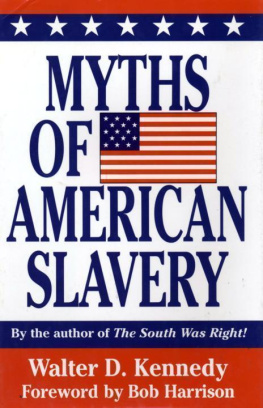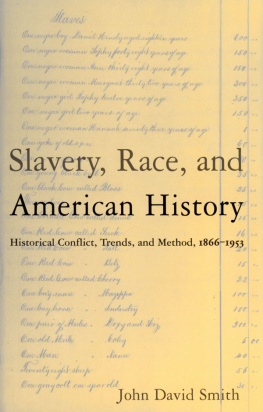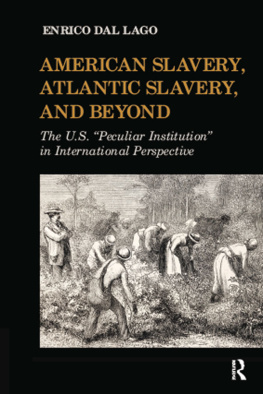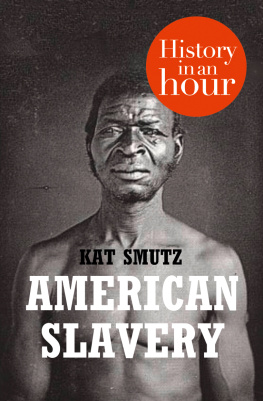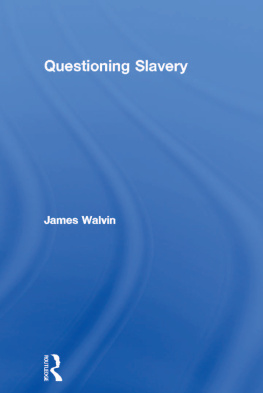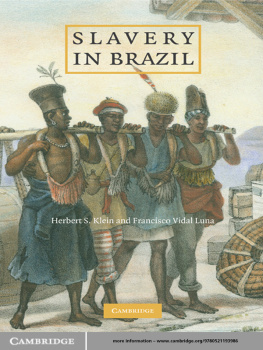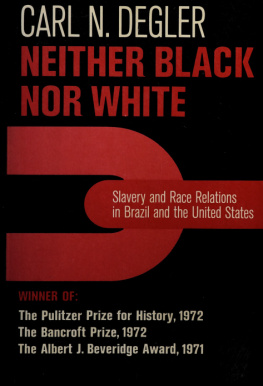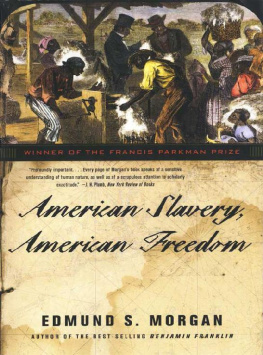MYTHS OF AMERICAN SLAVERY
MYTHS
OF
AMERICAN
SLAVERY
Walter D. Kennedy
Foreword by Bob Harrison




Contents
...............................................7
............................................9
Chapter 1 ..............13
Chapter 2 ................21
Chapter 3 ................69
Chapter 4 .........101
Chapter 5 ......................141
Chapter 6 .................163
Chapter 7 ....183
Chapter 8 .
Chapter 9 ...............211
Chapter 10 ....................221
...235
....................241
...............247
................................................253
..........................................269
................................................275
Foreword
I met the author of this book, Walter D. ("Donnie") Kennedy, at the first annual Southern Party convention in Charleston, South Carolina. I was profoundly impressed by his knowledge of the facts of Southern history and the War of Northern Aggression. Even more so, he immediately gained my respect and admiration as a man willing to give anyone an opportunity to debate his views as stated in his books. Donnie and his twin brother Ron had already gained fame with their book, The South Was Right!, and subsequent titles, Why Not Freedom!, and Was Jefferson Davis Right? (a copy of which remains on my desk at work). His fiery spirit, a twin to my own, comes through in his speeches and writing and always manages to evoke thoughts, both pro and con, in those who hear or read his words.
When Donnie informed me of his decision to write a book on the truth about American slavery, I was immediately intrigued. After reading his manuscript, I guarantee that all who read this book will find evoked in them feelings regarding this issue that will still generate controversy and anger. As a first sergeant of Company B, Thirty-Seventh Texas Cavalry, C.S.A. (a historical reenactment unit), a Southern Party staff writer, a descendant of two Virginia slave families, a history scholar, and a modern black Confederate, I already possessed many of the same feelings and much of the same knowledge that Donnie displays in this book. However, since reading this well-written and well-documented work, I have been greatly inspired to look even deeper into the minds and experiences of the slaves (of all color and ethnicity) who endured that "peculiar institution." As a historian with a strong wealth of knowledge about Confederates of color, I already knew that much of what is being taught as "gospel" regarding slavery is highly suspect at best. The information provided in this book fills in many of the gaps that the "official texts" leave empty.
The introduction to this book is thought provoking and sure to "get under the skin" of mainstream liberal black leaders and members of civil-rights organizations. In the introduction, the author makes a strong and logical argument against slave reparations. He explains that, while injustices did occur throughout the history of American slavery, (1) slavery was never a regional issue confined to the South, (2) slavery was not condemned by the early Church, and (3) through the institution of slavery, blacks were given real freedom-freedom from the harsh realities of slavery and the slave trade which still exist in Africa to this very day! I am certain there will be those who will attempt to label Walter Kennedy's fine work as a document laden with racist diatribes. I am certain there will be those who will choose to ignore his acknowledgment of the horrible acts committed during the history of American slavery. Regardless of what they read, some people will choose to believe that he is saying that these horrible acts never occurred. The author makes it abundantly clear that these things did happen. However, those with the courage and the fortitude to allow themselves to ingest all of this book will discover that what they think they know about slavery and the "truth about the institution of slavery" are not one and the same. The author, my personal friend and Confederate brother, has put together a work drenched in true historical fact that will not only evoke emotion, but will also clearly indicate that the way this tender subject is taught must change immediately. I dare say, he is right yet again!
Bob Harrison
Southern Party Staff Writer
First Sergeant, Company B
Thirty-Seventh Texas Cavalry, C.S.A.
Introduction
No subject [slavery] has been more generall'c misunderstood or more persistently
Jefferson Davis
The Rise and Fall of the Confederate Government
Few if any Americans would consider slavery as anything other than a curse on mankind. From the beginning to the end of this work, this author maintains that slavery in its various manifestations is nothing less than that very curse. Yet, understanding the "curse" of slavery and having a through understanding of that institution in American life is not one and the same.
In the history of these United States no subject has been more discussed, debated, and fought over than the issue of slavery. To modern minds, the idea of slavery is incomprehensible. Nothing appears more "self-evident" to modern Americans than the fact of individual freedom. This "self-evident" notion of freedom is so ensconced in the American psyche that even those who attempt to fairly discuss the subject of the institution of slavery are subjected to ridicule, being characterized as "defenders of slavery." Therefore, the point must be established that, telling the whole story (i.e., the complete truth) about the institution of slavery is not the same as defending the institution of slavery. Rather, it is those who refuse to make an unbiased study of the institution of slavery who are defending a lie, a myth, or at best, a half-truth; and, therefore, defending an evil institution. If the truth can make one free, then condemning those who are searching for the whole truth is an attack upon intellectual freedom.
As has been noted, the issue of slavery in America has deep historical roots. Since the end of the War for Southern Independence, the "party line" from the victors in Washington has asserted that the blame for all problems arising from the issue of slavery should reside preeminently in the South. An open-minded individual should notice that Northern heroes and symbols are seldom condemned for racist comments or for being involved with the African slave trade or even slavery itself. The brunt of condemnation for slavery is reserved for Southern heroes and Southern symbols. The victors assert that in the so-called Civil War,2 the North fought for human freedom and equality while the South fought to maintain the institution of slavery, even if it meant the destruction of the United States. The party line, repeated by virtually every agent of information (that is, the media, academia, and theologians) is systematically enforced with the tyrannical effectiveness of George Orwell's Big Brother. Therefore, the average American today has only a superficial knowledge about the subject of slavery. For most modern Americans, slavery was (and is) a "Southern" problem.

